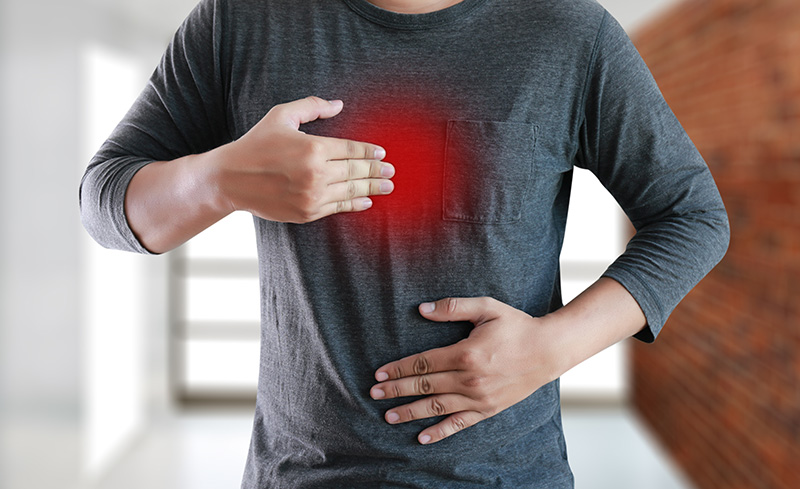
The holidays are a time for celebration, but they can also be a time for acid reflux. If you’re one of the millions of Americans who suffer from this condition, you know how uncomfortable it can be. In this article, we will provide some tips to help you avoid acid reflux during the holiday season.
Foods To Avoid
The first thing to keep in mind is that certain foods and beverages can trigger reflux, such as greasy or spicy foods, alcohol, carbonated sodas, and caffeinated drinks. To avoid these triggers, try to eat light meals made from more slowly-digesting ingredients like fruits and vegetables. Also be sure to limit your intake of any beverages with a high acid content.
- alcohol, particularly red wine.
- black pepper, garlic, raw onions, and other spicy foods.
- chocolate.
- citrus fruits and products, such as lemons, oranges and orange juice.
- coffee and caffeinated drinks, including tea and soda.
- peppermint.
- tomatoes.
- potato chips & other processed foods.
- fried food.
- pizza.
Foods That Help Prevent Acid Reflux
Fibrous foods make you feel full so you’re less likely to overeat, which may contribute to heartburn. So, load up on healthy fiber from these foods:
- Whole grains such as oatmeal, couscous and brown rice.
- Root vegetables such as sweet potatoes, carrots and beets.
- Green vegetables such as asparagus, broccoli and green beans.
Foods fall somewhere along the pH scale (an indicator of acid levels). Those that have a low pH are acidic and more likely to cause reflux. Those with higher pH are alkaline and can help offset strong stomach acid. Alkaline foods include:
- Bananas
- Melons
- Cauliflower
- Fennel
- Nuts
Eating foods that contain a lot of water can dilute and weaken stomach acid. Choose foods such as:
- Celery
- Cucumber
- Lettuce
- Watermelon
- Broth-based soups
- Herbal tea
Smaller Portions
In addition to what you eat and drink, how you eat is important too. Eating too much food at once can cause you to feel overly stuffed, which puts pressure on the lower esophageal sphincter (LES), increasing your risk of reflux episodes. So try not to overeat or overindulge in rich foods and alcohol. Instead, focus on smaller portions and eat slowly when enjoying a holiday meal with family and friends.
Time of Day Matters
Along with eating habits, it’s important to consider the time of day you’re consuming food as well. Certain foods are more likely to cause reflux at night because they relax the LES muscle after it has been active all day long. So if you tend to experience reflux episodes mainly at night or in the evening hours, try modifying your diet by avoiding these types of foods or beverages during this part of the day.
Exercise Helps
Lastly, keep in mind that exercise can also help prevent acid reflux. Regular physical activity helps improves digestion and reduces excess stomach pressure, both of which can aggravate reflux symptoms. So be sure to get up and move around a bit between meals, especially if you have foods or drinks that are likely to cause reflux.
If you find yourself experiencing more acid reflux episodes than usual during the holidays, remember these tips and make some lifestyle changes. Doing so may help reduce your symptoms and allow you to fully enjoy this special time of year. For more health-related articles, visit www.AZPrimaryClinic.com.
Visit Our Office
Location
2940 FM-2920 Suite#150
Spring, TX 77388
Fax: (281) 730-5919
Hours
Monday – Thursday
8:00am – 5:00pm
Fri-Sat-Sun
CLOSED

